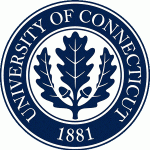Nursing homes are really struggling. We all witnessed the devastating number of Covid deaths in nursing homes throughout the pandemic. Now, nursing homes are toiling with labor shortages that make it very difficult to provide adequate care for residents. While the immediate impacts of the pandemic will eventually stabilize, in the coming decades, nursing homes will need to cope with increases in the demand for their services as baby boomers age. How will an industry that has struggled to hire and keep enough workers even before the pandemic be able to address the increasing care needs of an aging population?
One potential solution: A more open immigration policy. Professor Delia Furtado’s new research shows that nursing homes in areas receiving more immigrants are able to provide better quality care for residents. She talked about why this might be on The Indicator Podcast. Part of this interview aired on All Things Considered.
In related work, PhD student Treena Goswami finds that older college-educated native-born women remain in the labor force longer when they live in areas with more immigrants. Her analysis suggests that when immigrants are available to provide inexpensive care-giving or housekeeping services, older women (who can afford these services) do not have to prematurely leave the labor force in order to provide full time care for loved ones. Further evidence that policies allowing for more immigration might help the U.S. address the care-giving needs of an aging population.

 Oskar Harmon and Paul Tomolonis (UConn PhD 2017) have co-authored the article “Learning Tableau – A data visualization tool”, published in the Journal of Economic Education.
Oskar Harmon and Paul Tomolonis (UConn PhD 2017) have co-authored the article “Learning Tableau – A data visualization tool”, published in the Journal of Economic Education.